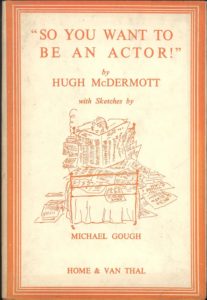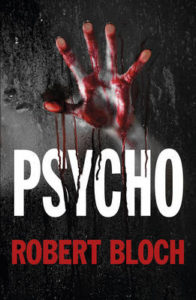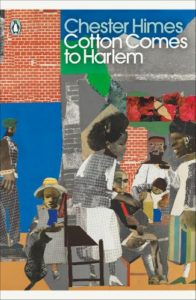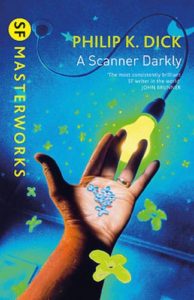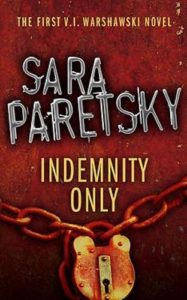Decades: Compiling the Ultimate Library with Steve Cavanagh
It was around this time last year the Decades Library was first imagined. You’ve likely heard this before but to welcome new visitors I will explain my Decades Challenge and the ultimate goal.
Something happened which made me ponder the question: Where would you begin if you were asked to assemble a library but had to start with nothing but empty shelves. You have no books. None. Not one. Which books would you add to the library shelves to make sure readers would have nothing but the very best books to choose from?
I quickly realised that I could not possibly answer this question alone so I decided I would ask some guests to help me. Each week I am joined by a booklover (authors, bloggers, publishers and journalists have all lent their time to assist) and I ask them to nomimate some “unmissable” books. To make their selection process slightly more complicated I set two rules which each guest must follow:
1 – Choose Any Five Books
2 – You May Only Select One Book Per Decade From Five Consecutive Decades
And that’s the Decades Challenge. Selecting five favourite books. If you think it’s easy then try to narrow down your own five choices.
All that remains now is for me to pass the Curator’s Hat to my guest. It’s my absolute delight to welcome Steve Cavanagh to the Library.
 Steve Cavanagh is a critically acclaimed, Sunday Times best-selling author of the Eddie Flynn series. All of his novels have been nominated for major awards. His third novel, The Liar, won the CWA Gold Dagger for Crime Novel of the year 2018. Thirteen won the Theakstons Old Peculier Crime novel of the year 2019. The Eddie Flynn novels have been translated into 26 languages. His latest book is The Devil’s Advocate.
Steve Cavanagh is a critically acclaimed, Sunday Times best-selling author of the Eddie Flynn series. All of his novels have been nominated for major awards. His third novel, The Liar, won the CWA Gold Dagger for Crime Novel of the year 2018. Thirteen won the Theakstons Old Peculier Crime novel of the year 2019. The Eddie Flynn novels have been translated into 26 languages. His latest book is The Devil’s Advocate.
You can order any of Steve’s books here: https://www.amazon.co.uk/Steve-Cavanagh/e/B00OAGCA62?ref=sr_ntt_srch_lnk_1&qid=1642111903&sr=8-1
DECADES
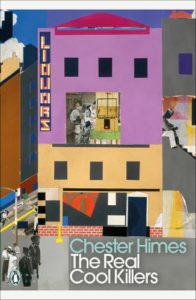 The Real Cool Killers by Chester Himes (1950)
The Real Cool Killers by Chester Himes (1950)
Chester Himes had an extraordinary life of hardship and adversity. I can think of few writers who experienced half of what he had to endure. I am a huge fan of Raymond Chandler, but I think enough people will have read and marveled at Chandler already, and not nearly enough people have read Chester Himes. On his best day, Himes can make words dance. He is one of the very few writers that can turn prose into music. This novel is the second outing in the Coffin Ed and Grave Digger Jones detective series. By all means start with A Rage in Harlem, but I think some of the best prose work is in this one.
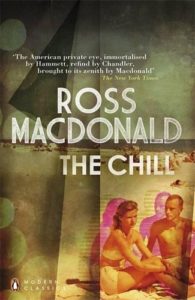 The Chill by Ross MacDonald (1964)
The Chill by Ross MacDonald (1964)
Ross MacDonald had his own personal troubles. He poured his heart and his empathy for his fellow human beings into his work, and specifically, his fictional hero PI Lew Archer. Writing a long-running detective series is an incredibly difficult undertaking. I remember Dennis Lehane remarking that writing a series can yield diminishing returns when it comes to the quality of each book, “how many people say the twelfth book in a series is their favourite?” This is a fair point, but some writers beat those odds. The Chill is the eleventh Lew Archer novel, and many people say it’s the best.
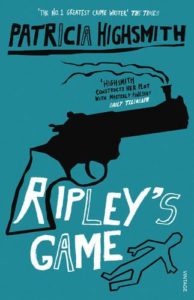 Ripley’s Game by Patricia Highsmith (1974)
Ripley’s Game by Patricia Highsmith (1974)
Few authors have had such an impact on the genre as Patricia Highsmith. She was perhaps one of the finest proponents of the psychological thriller. In Strangers On A Train, she used a high concept hook as the engine for the novel and wrote many more standalones. She also wrote a brilliant short series about the killer and conman Tom Ripley. In Ripley’s game, she combines the two elements of her craft. What if you had a terminal illness? What if someone, perhaps with dark motives, came to you and offered a vast sum of money if you killed someone? You family will need that money when you’re gone. What if what began as a psychological game turned into something much more terrifying? A brilliant book, and one that I return to again and again.
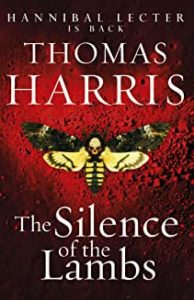 The Silence of the Lambs by Thomas Harris (1988)
The Silence of the Lambs by Thomas Harris (1988)
There’s not much to say about this one other than it’s the book that made me love crime and thrillers. I’d read Sherlock Holmes, and detective comics, but it wasn’t until I was around twelve or thirteen that I read this one. My mum gave it to me. I know some people think Red Dragon is a better thriller, but for me Clarice Starling is an equally brilliant creation as Hannibal. This is the book that started it all for me. If you’ve just seen the movie, then do yourself a favour and read the book.
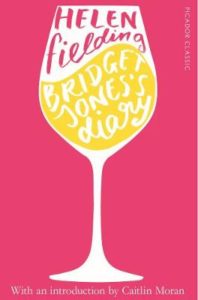 Bridget Jones’s Diary by Helen Fielding (1996)
Bridget Jones’s Diary by Helen Fielding (1996)
Because life isn’t all detectives and murders, it’s good to have an injection of humour now and again. I think this is one of the great comic novels. Maybe the last great one. It is so brilliantly well written, laugh-out-loud funny and touching and made all the more real by the style and structure. Again, if you’ve only seen the movie – please read the book.
It’s hard to believe it has taken twelve months of Decades selections for Patricia Highsmith make her debut. Five terrific reads and this is what I consider the “perfect” mix of titles – some books I know and love but there are also a couple of new recommendations which I immediately felt I needed to read. A weekly assult on my TBR! My thanks to Steve for taking on the Decades challenge.
